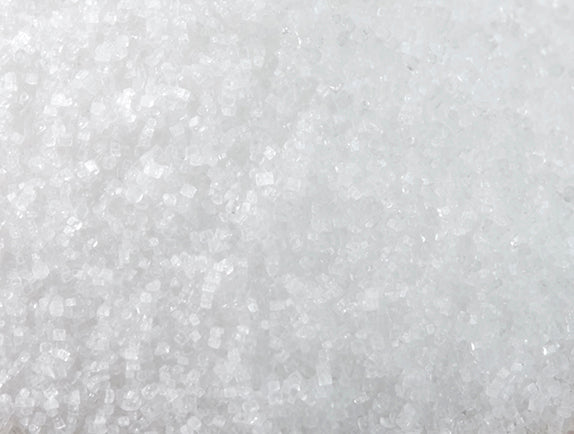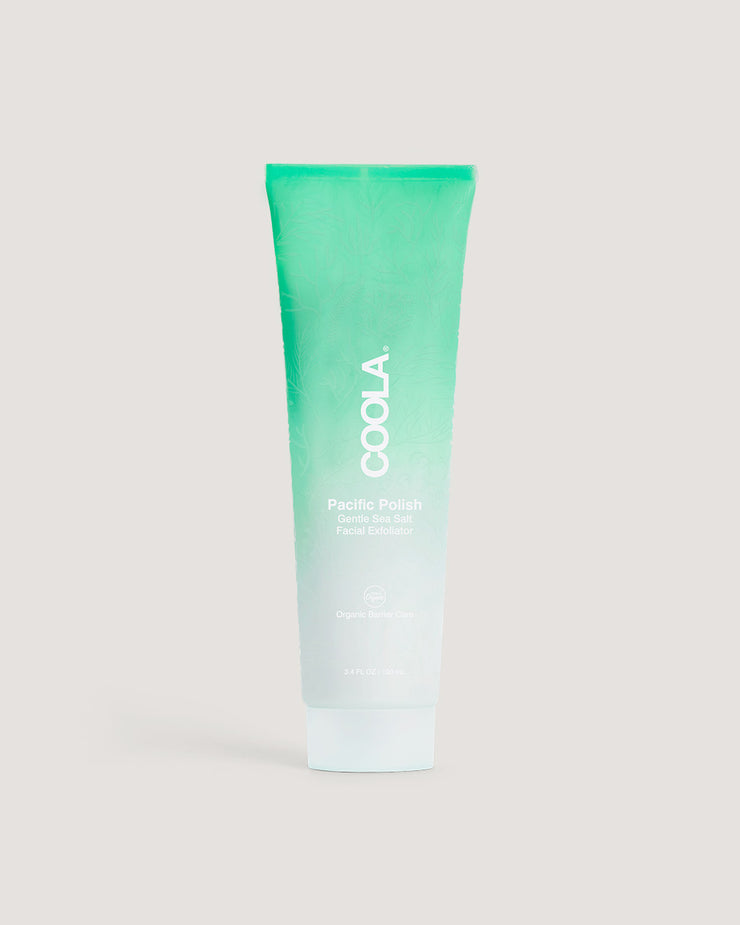
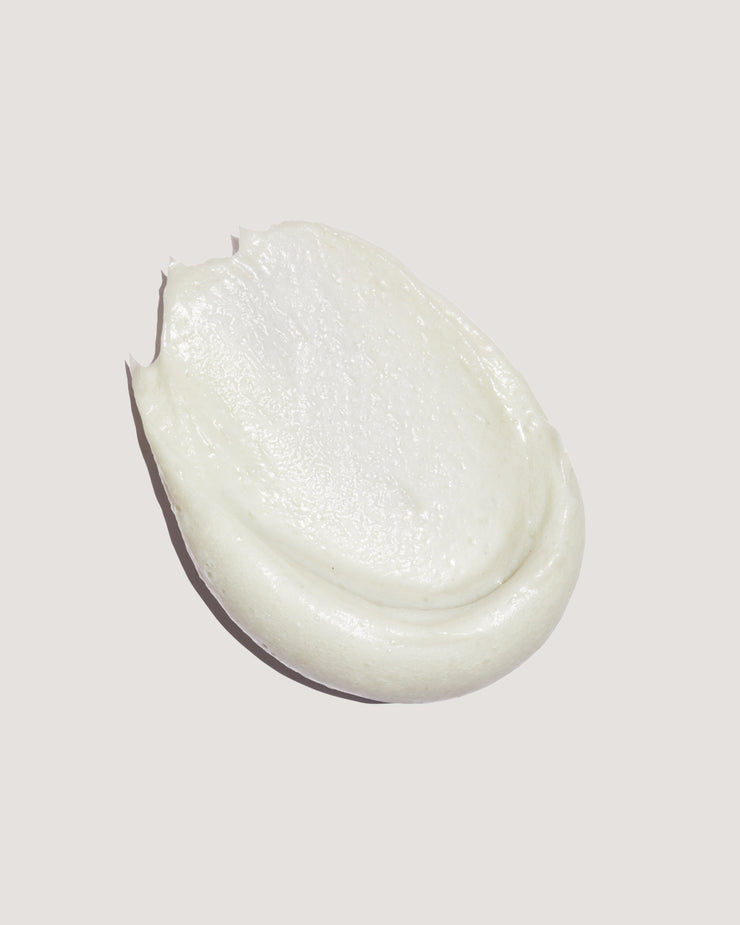
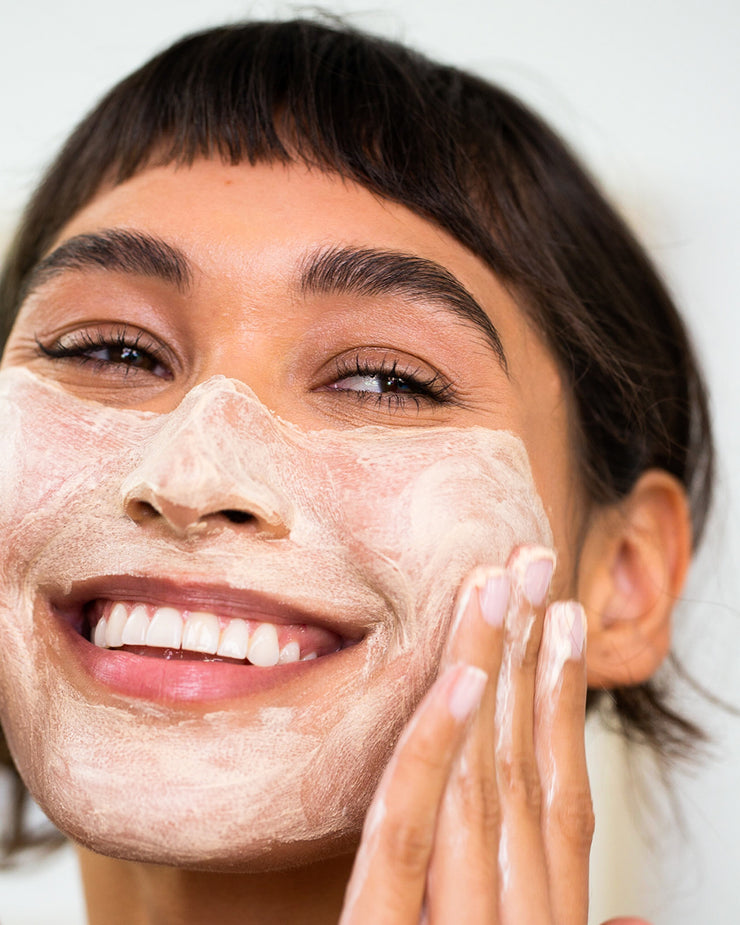
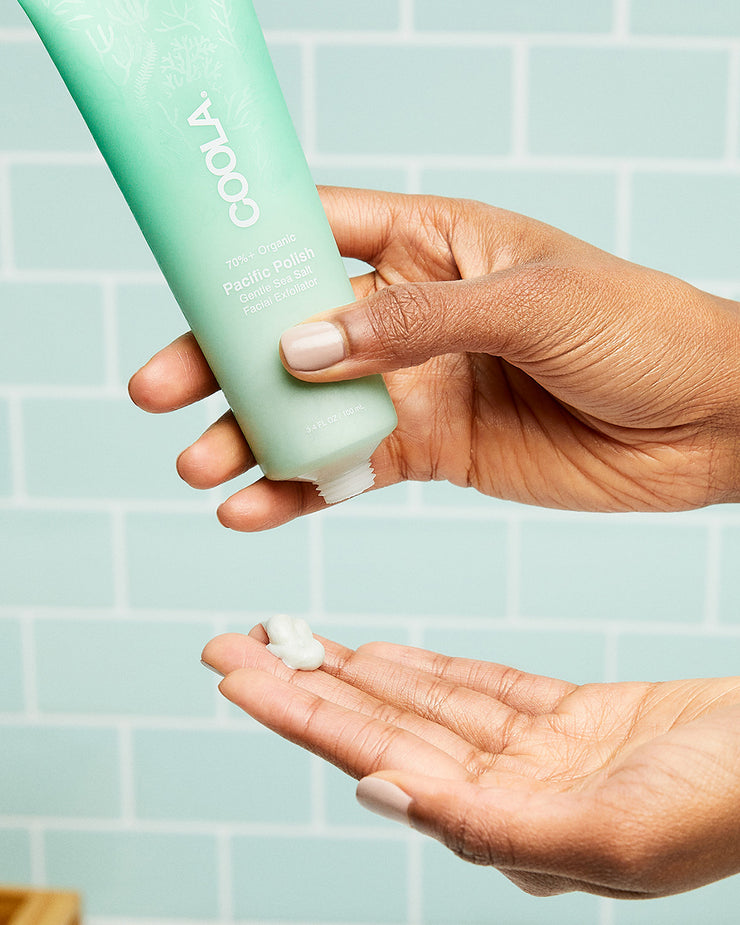
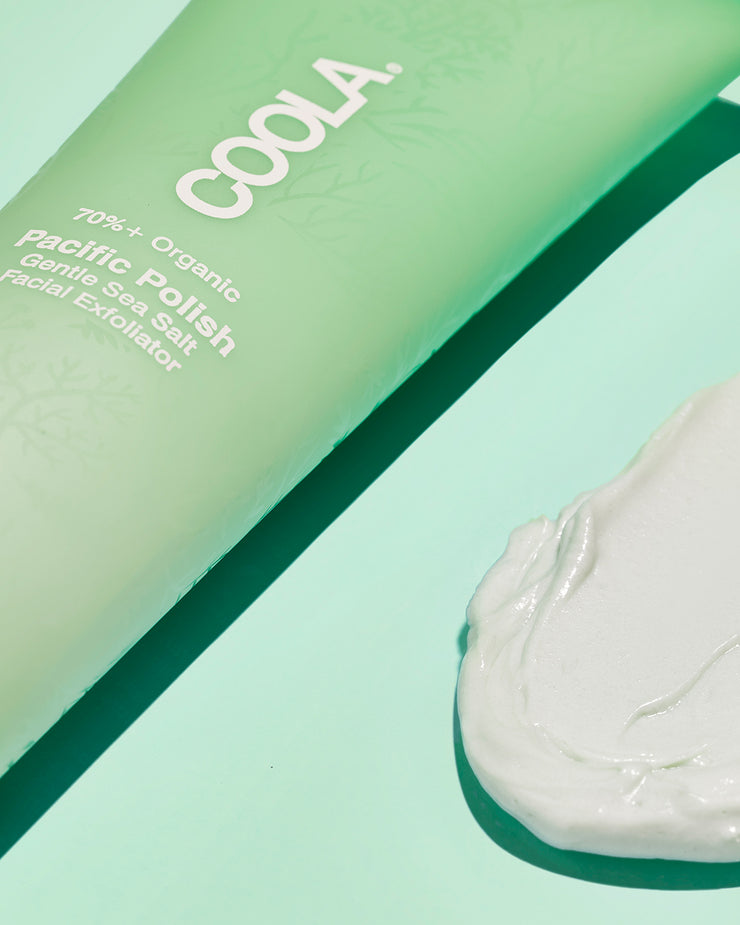
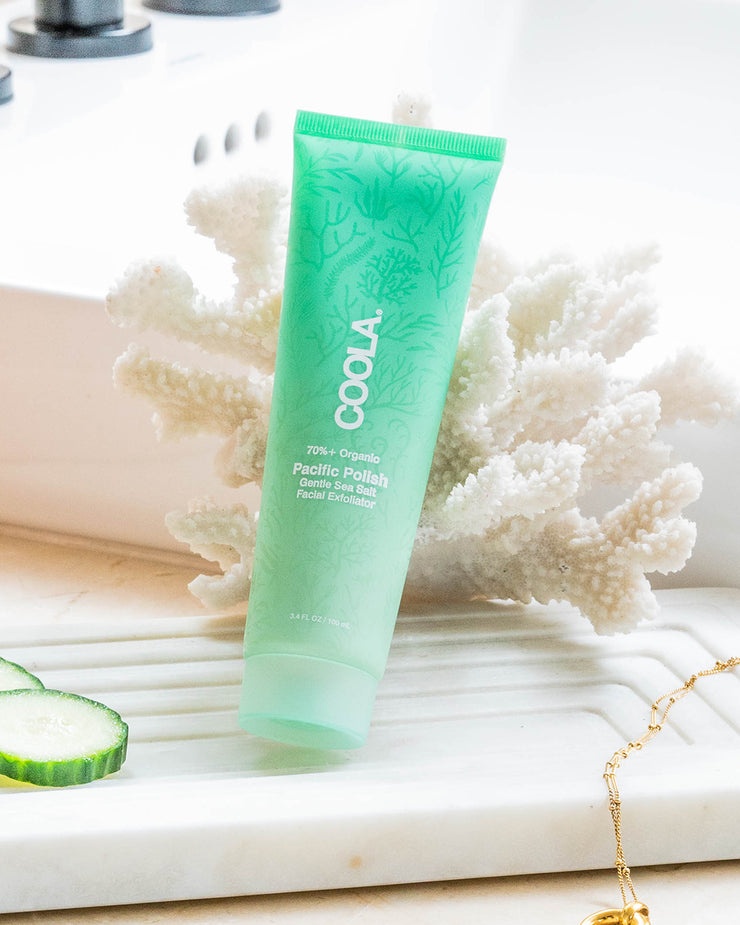
Clear Filter
Pacific Polish Gentle Sea Salt Facial Exfoliator
Skincare • Organic • Facial Exfoliator
Regular Price
$32
Description
A delicate organic facial exfoliator that dissolves away impurities and refines skin. Read More
- Ultra-fine mineral sea salt helps smooth away dull, dry skin cells
- Infused with Ayurvedic Oils to soothe and nourish skin's natural barrier
- Papaya Extract purifies and decongests pores
Key Ingredients
How to Use
Active Ingredient Spotlight
GET IN THE KNOW
Frequently Asked Questions
Will this clog my pores?
When you say your products are organic, what does that mean?
How is this scented?
Does this have allergens?















